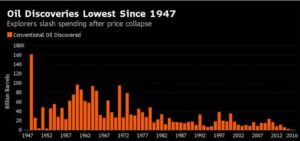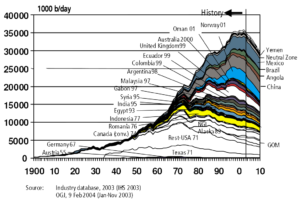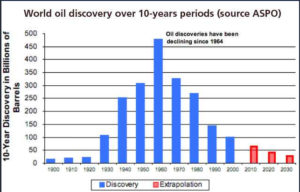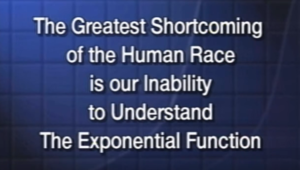The intro can be read by all, but is largely for long time readers of the blog. Click here to go to the main section: Dropping Out: Why & How?
I remember when this all started, the blog, the Twitter account etc. Couple of years ago now. At the time there was a Twitter user who went by the handle ‘Nishiki Prestige’, here is my review of his album XOXO. Anyway, Nishiki was, for lack of a better description, a ‘free spirit’. Now, I’m not entirely sure what that means anymore, but he certainly had it out for civilization at large, wasn’t keen on society and was extremely open in explaining why all this was pretty annoying, bad and generally frustrating, and he was even more helpful and lobbing resources one’s way to help with the exit process. One of the first things ol’ Nishiki sent me was Ran Prieur’s How to Drop Out, which is deserving of a full read for any up-and-coming fringe societal member, or anyone in general who is finding it difficult to find what they want within the surroundings they’ve been given. As such I want to make it very clear how much of an inspiration Prieur’s post was on this one. These things often need tweaking and updates, I mean isn’t that the point of ‘dropping out’, to truly think for yourself, and as such, I think that the drastic changes between ’04 and 19 have been enough to warrant my own musings on dropping out as a whole.
Now before I begin this piece I want to comment on a comment I’ve received. It was on my How To Live Like an Emperor for Very Little piece. Now admittedly the title of that piece was a little annoying, but the reason I wrote it was because I’d had one of those days where you get truly nauseous at the attitudes of the average, whinging, moaning, pathetic man – those who just cannot make their own choices, those for whom everyone else is to blame, and there is always someone else to blame. Now the comment states:
“If the post didn’t have that arrogant “I just got my life sorted out why haven’t you?” tone I probably wouldn’t even have noticed how much of the advice was nonsense,”
Take of leave the advice on my post, I don’t care. But in my reply to the comment I state: As for the ‘I just got my life sorted out why haven’t you?’ remark, I don’t mind it. But the whole point of my use of language in other posts – becoming & overcoming specifically – is that ‘sorting yourself out’ isn’t a conclusion, it’s a journey, as soon as you think you’re complete and have sorted it all out, you’re stuck and ignorant. It’s all about the journey. This post was a sort of cantankerous reaction to much of the ironic and moany behavior I see from a lot of people aged 20-40 nowadays. Everything is fucked and it’s someone else’s fault. I say no, take action, you have choices and possibilities.
There’s a question here to be stated: When is the correct time to offer advice? Of course if there’s a *clear* goal in mind such as money etc. then those who have money can offer advice and those who are failures in increasing money cannot. However, when it comes to happiness, fulfillment and contentment, alongside means to exit modernity who can truly give advice. A large amount of the boomers can’t because their goals are empty – that’s not saying many are content etc. – I’m simply giving advice which I have found has made my life more fulfilling and meaningful. I’d like to think my readership is intelligent enough to not simply take everything at face value. And I’d like to make is even clearer that I by no means have my life ‘sorted out’, not even close, but I have found many things in the past few years that have made me happier and my life more meaningful, and I see no harm in explaining them to you so you may give them a try.
And with that, I trust you too dear reader, will not take everything I state at face value and will think for yourself as to whether or not the path I promote is truly one you wish to venture down.
DROPPING OUT: WHY AND HOW?
WHY?
‘Why drop out?’ isn’t a something I imagine many of my readers will really question too much, so I guess this extrapolation is for those who’ve stumbled across this post and are wondering what all this ‘dropping out’ stuff is about, hence, the ‘why’ at large. See, as much as I love Ran Prieur’s original How To Drop Out post, it does gloss over the ‘why’ very quickly, which in terms of motivation, discipline and rationale should be assimilated into one’s thought as thoroughly as possible, for when the path gets tough – as it inevitably will do – when dropping out, one can always return to the overarching why of ‘why to drop out’.
Of course, we will need one of those horrid things called ‘definitions’, the cause of much frustration to all involved really. Then again, the definition of ‘dropping out’ isn’t really going to be argued over by those who already have, they’re already living. Dropping Out implies that there is not only something to ‘drop out’ from, but assumes that the ‘thing’ one is dropping out from is bad, and is something that one would want to drop out from. In my post The Virulent Magic of Modernity I generally define this ‘thing’ as ‘modernity’. I guess you could call it Western civilization if you wanted (though that has historical connotations), you might even call it society, but that too would have social connotations, and what we’re really talking about here is personal choice, will and action, we’re talking about an individual (me or you) making a choice to exit, or drop out. Dropping Out then, is the critical mental journey one undertakes as they begin to enter society at an atomized worker.
It begins with the excessive moments of mind-numbing boredom found in the average workplace, it’s found on the journeys to and from said workplace wherein one is tired, empty and wondering why they’re doing this in the first place. It is found in the heart-wrenching lunch-breaks one wishes they could be spending with their children, it is found on the sofa, night after night, watching empty drivel on TV as you consume food sourced from 10 different countries and packaged in oil-based wrapping, it is largely found in the moments where it seems all direct connection to anything has been lost.
In short then ‘Dropping Out’ is simply the – critical – process of ‘leaving’ the normalcy imposed upon you by society. It is to say ‘I would rather not.’, ‘I do not do that.’ or ‘No.’ in the face of assumed choices. It is the beginning of freedom. It is shouting at the top of one’s lungs “This is not fucking normal!”. I know you’ve felt this, you look around and see droves of people who are so disconnected from their own realities it amazes. By that I mean that the large majority of people exist in such a way that they are disconnected from anything that is primarily to do with their actual existence or survival. Now, I don’t want to get too Darwinian, but it is inescapable. People who haven’t cooked a meal (fed themselves) in weeks, people who rely on third party tools, groups and processes to allow them to even be, and people continue to strive in this direction too. Or as Ted Kaczynski states in paragraph 38 of his manifesto:
When people do not have to exert themselves to satisfy their physical needs they often set up artificial goals for themselves. In many cases they then pursue these goals with the same energy and emotional involvement that they otherwise would have put into the search for physical necessities.
People are disconnect, alienated and walking around in a daze because their lives no longer consist, nor do they need to consist of that which actually keeps them alive. We are a species bereft of all primary responsibility (I am talking predominantly of the West here of course). One of the best commentators on contemporary Western life is John Michael Greer, who articulates the struggle of the system as such:
“For most people in today’s America, in other words, the closest approach to the glorious consumer’s paradise of the future they can ever hope to see is eight hours a day, five days a week of mindless, monotonous work under the constant pressure of management efficiency experts, if they’re lucky enough to get a job at all. On top of that, they get to spend a couple of additional hours commuting and work any off-book hours the employer happens to choose to demand, in order to get a paycheck that buys a little less each month – inflation is under control, the government insists, but it’s funny how prices somehow keep going up – of products that are more shoddily made, more frequently defective, and more likely to pose a serious threat to health and well-being of their users with every passing year. Then they can go home and numb their nervous systems with those little colored pictures on the screen, showing them bland little snippets of experiences they will never have, wedged in there between the advertising. That’s the world progress has made.” – John Michael Greer, The Retro Future.
In short, the answer to the ‘why’ of ‘why drop out’ is most succinctly found in the following quote by Bukowski:
“How in the hell could a man enjoy being awakened at 8:30 a.m. by an alarm clock, leap out of bed, dress, force-feed, shit, piss, brush teeth and hair, and fight traffic to get to a place where essentially you made lots of money for somebody else and were asked to be grateful for the opportunity to do so?
Why do you want to drop out of all this? Because you know, deep down, there’s more to all this, there literally has to be. I promise you, there is. Life is found in the most unexpected, simple and mundane places, complexity breeds complacency. The best way to get your life back is drop out and live simply. Quite simply:
“Why drop out?”
“I’m not happy, content or fulfilled and my life is bereft of meaning.”
HOW?
It seems insurmountable doesn’t it? From here, from all that I’ve previously written surely such a behemoth of complexity and confusion is nigh impossible to exit or drop out of. I will be honest with you, it’s difficult, not as difficult as one might think, but certainly more difficult that romantics would like you to know. The primary difficulty in dropping out is that one’s entire frame of reference has to change for them to be able to continually survive in their newfound life.
If it hasn’t been made clear already the primary component of society/modernity which makes man miserable is money. Money, production, consumption etc. The idea that one has to be doing or using of these three things for their life to have any meaning is a deep-seated belief for almost all inhabitants of the West. If one is to re-read the Bukowski quote above they realize that all aspects of the ‘loop of modernity’: Work > Home > Eat > Purchase > Work, are reliant on a certain attitude towards money. The attitude that money in and of itself is a meaningful end, whether or not that money has been converted into items or luxuries etc. either way, one’s purpose was to acquire money. Now, I’m not silly, I know we all need money to survive, that’s obvious. It’s just that most people know that it’s actually their choice how they use it, and not the choice of the 1001 forces acting upon them to part with their money on a daily, hourly…second…ly basis.
Prieur makes it very clear that dropping out as seen as simply quitting your job and getting a train to god-knows-where is a dumb idea. If you want to make dropping out work then that’s something you’ll have to do. Such an assertion once again makes it clear that dropping out isn’t primarily a material choice, but a shift in one’s understanding of their life. If you shift your perception in such a way that you literally don’t need as much money, then guess what, you will no longer need as much money…magical, isn’t it.
In my discussion with John Michael Greer we spoke about the animatronic Santa Claus robots you see at Christmas. You know the ones, you press a little button and they do a little dance and song. See, they’re great at articulating how one needs to change their perception towards consumption if they wish to be able to drop out. The point Greer makes is that if one was to think about said purchase for more than say, a nanosecond, you most certainly wouldn’t purchase it. Even a few quick questions to oneself – ‘Do I need this?’, ‘Did I ever want this?’, ‘Will this add anything to my life?’ and you realize that not only did you never need/want this item, but you were in fact subconsciously affected into even considering it, it’s an item that if it didn’t exist, you never would have thought of – people are selling you things that you both never wanted and never even thought of, don’t fall for their tricks, think! And so the first practical ‘how’. Before you purchase anything (at least for the first few weeks) think to yourself ‘Do I actually need this?’, ‘Will buying this improve my life?’ – or at least improve your life in such a way that working a few hours was worth it. Measure your purchases not in monetary value, but in how many hours you had to work to acquire whatever it is you wish to buy.
As for jobs this is a leap I’ve made myself. I worked this very cushy (sit on your arse and do basically nothing) marketing job until very recently. See, even though I did very little I was miserable because the work itself had no tangible effect on reality, I was helping no one and there was no benefit from the work I was doing, except in absurd statistical terms. And so I quit and joined a local woodworking company. The days go fast, the work is satisfying and most importantly there’s no bullshit. I don’t take the work home with me (mentally), there’s no bureaucratic crap and I can see the results of my work (someone now has a working door or window).
So this ties in with a brilliant point that Prieur makes, you can drop out ‘a short distance’. By that I mean that just because one is dropping out, it doesn’t mean they have to start dumpster diving and growing their own food straight away. You can start by asking yourself this important question:
“Is the stress/bullshit/aggravation I take home from my current job worth the money I receive?”
If the answer is no, which it most likely is, then you have to start looking at what you can do about that. Is there a less stressful job nearby that you could happily do? See, once you alter your perception regarding consumption the fundamental (supposed) point of jobs changes. I mean, why do people want really ‘good’ jobs? What do we really mean when we say a ‘good job’? We’re not on about perks, job content or anything else are we, we’re on about money. A good job is one that pays more than the average. And so the large majority strive to get a good job so that they can also get a good (larger) house and a good (newer) car and good (branded) clothes and…you get the picture. Well, once you’re get yourself outside of these assumptions it all changes doesn’t it:
You don’t need branded clothes because you’re life isn’t that vacant and empty that you care about having a little tag on your clothes.
You don’t need a newer/fancy car because the purpose of a car is to get you from A-to-B, if it works, it’s a good car.
You don’t need a larger house because ultimately the only reason you’d ever need a larger house is to fit a load of shit in that you no longer need.
You no longer need a good/well-paying job because you don’t need the money to buy all the shit you don’t need.
Once this happens what does a job become? Well it becomes something you do only because it allows you money to do that which you enjoy doing, or because you simply need some money to pay for rent/shelter, food, hobbies and needed extras.
It’s amazing that such a different in temperament can change your life drastically. Imagine 2 separate people, both working the same job. Person 1 strives for all the unneeded creature comforts of modernity, the big TV, the fancy car, the big house, the trinkets and luxuries etc. To be able to achieve such a lifestyle they work all the extra hours they can and stress about their work performance, they take out loans to be able to afford these things etc. Their life revolves around nothing but the acquisition of items of status and proof that one is normal. Person 2 has dropped out. They work the job and don’t take home any stress because their wage not only covers all their expenses, but leaves them a little extra, simply because they understand things differently. Their life doesn’t revolve around consumption.
Some other skills which will allow you to drop out:
Learn how to fix your car and drive it until that thing is on the verge of imploding. Don’t buy into the ‘Needing the latest car’ thing (or the ‘needing the latest anything…thing’ for that matter), there’s literally no reason – aside from empty status and narcissism – that you need that a new, or updated car. If it works fine, ask yourself, why am I replacing it? On top of this, if you do decide to move jobs try move to on which is within walking/biking distance of your work – commuting is for idiots, you cannot get time back. And time spent with friends and family is more important that a 2 hour commute for some extra money. A side note on this, try calculate the amount you spend on fuel, maintenance and additional car extras due to the commute – definitely isn’t worth it.
Get your clothes from charity shops. Or, if you’re like most people, you’ve already bought at least 3-4 pairs of trousers, 5-10 shirts, 2 dress shirts, socks and boxers. You don’t need more, buying new clothes is boredom. You’re bored. Alongside this the idea of ‘boredom’ is a strange one. There isn’t really such a thing as boredom as far as I’m concerned, I can quite happily sit and do nothing and not be bored. Boredom is the feeling that you’re missing out on doing something, be it TV, video games, entertainment in general, it’s the idea that you’re not fine unless you’re doing something…it always turns out those ‘things’ cost quite a bit, what a strange coincidence. Learn to be OK with solitude and nothingness, it is quite beautiful once you settle in.
Learn how to cook, I cannot believe I even have to explain this. You’re a human being, one of your primary needs is food, nutritious food. If you routinely eat from packets then you’ve sold your survival to the lowest bidder. When someone says to me they cannot cook I take that as the greatest statement of immaturity, imagine letting consumer society get such a tight grip on you that you never even learnt how to feed yourself.
There is of course more I could add here, a lot more in fact, but the main thing that people should take away from this is that dropping out is possible and that it doesn’t have to be some drastic change where you end up homeless or squatting. One can drop out mentally first, and then attend to material matters.
There’s beauty out there, and it’s hidden. Hidden behind layers of societal pressures and cultural presuppositions, remove everyone else’s expectations of you and you’ll find yourself.
Resources:
Your Money or Your Life – Vicki Robin
Collapse Now and Avoid the Rush – John Michael Greer
Voluntary Simplicity – Duane Elgin
Early Retirement Extreme
Read More




